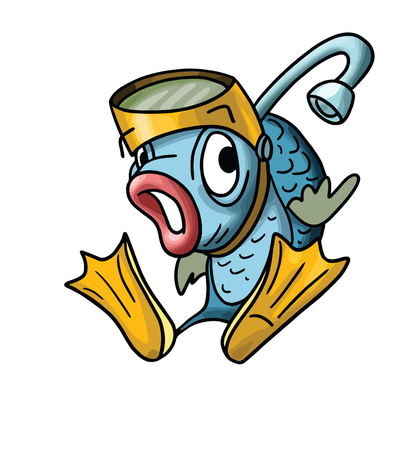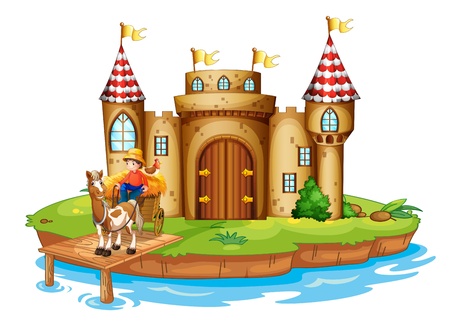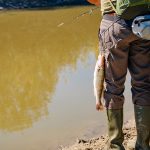1. The Role of Game Wardens in America
Across the United States, game wardens—also known as conservation officers or wildlife officers—play a vital role in protecting the nations natural resources. These dedicated professionals are responsible for enforcing laws that protect fish, wildlife, and their habitats. Whether it’s ensuring anglers follow fishing regulations or investigating illegal poaching activities, game wardens are on the front lines of conservation law enforcement.
Who Are Game Wardens?
Game wardens are state or federal law enforcement officers who specialize in natural resource protection. They often work for state fish and wildlife agencies or the U.S. Fish and Wildlife Service. Their job combines elements of police work with a deep knowledge of biology, conservation, and outdoor survival skills.
Main Duties of Game Wardens
| Duty | Description |
|---|---|
| Enforcing Fishing Laws | Checking fishing licenses, bag limits, size limits, and seasonal restrictions to ensure compliance. |
| Wildlife Protection | Preventing illegal hunting, trapping, and trade of protected species. |
| Public Safety | Assisting in search and rescue operations and handling dangerous wildlife encounters. |
| Education & Outreach | Teaching the public about conservation practices and responsible outdoor recreation. |
| Environmental Monitoring | Observing ecosystems for pollution, habitat damage, and invasive species. |
Why Their Work Matters
Without game wardens, Americas waters and wildlife would face serious threats from overfishing, habitat destruction, and illegal activities. These officers ensure that natural resources remain available for future generations by keeping outdoor activities sustainable and fair for everyone.
A Day in the Life of a Game Warden
A typical day might involve patrolling lakes by boat, hiking through remote forests, inspecting fishing equipment at docks, or responding to reports of poaching. It’s a physically demanding job that requires quick thinking, strong communication skills, and a passion for protecting nature.
The Reach of Fishing Law Enforcement
Game wardens operate across all types of terrain—from coastal waters to mountain streams—and they often collaborate with other local, state, and federal agencies to enforce environmental laws effectively. Their presence helps maintain balance in our ecosystems while supporting ethical recreational fishing practices nationwide.
2. Laws That Govern Americas Waters
Fishing in the United States is more than just casting a line and hoping for a bite — it’s regulated by a network of federal and state laws designed to protect aquatic ecosystems, maintain fish populations, and ensure fair access for everyone. These laws are enforced by game wardens who patrol rivers, lakes, and coastal waters across the country.
Federal vs. State Fishing Laws
Fishing laws can vary widely depending on where you are. While some rules apply nationwide, most fishing regulations are created and enforced at the state level. Federal agencies like the U.S. Fish and Wildlife Service manage fishing in national parks and refuges, as well as regulate certain migratory fish species. Meanwhile, each state has its own department of natural resources or fish and wildlife agency that sets local fishing seasons, limits, and license requirements.
Licensing Requirements
A fishing license is usually required whether youre angling in freshwater or saltwater. Licenses help fund conservation efforts and allow states to track how many people are fishing.
Common License Types:
| License Type | Description |
|---|---|
| Resident Fishing License | For those who live in the state they’re fishing in |
| Non-Resident Fishing License | Required for visitors from other states |
| Youth License | Often discounted or free for minors under a certain age |
| Seniors/Veterans Licenses | Special rates or exemptions for seniors or military veterans |
Catch Limits and Size Regulations
Certain fish species have daily catch limits to prevent overfishing. In addition, size limits are set so that young fish have a chance to mature and reproduce before being harvested.
Example Catch Limit Table:
| Fish Species | Daily Bag Limit | Minimum Size (inches) |
|---|---|---|
| Largemouth Bass | 5 per angler | 14″ |
| Trout | 6 per angler | No minimum size in some states |
| Sockeye Salmon | 2 per angler (in-season) | 16″ |
Seasonal Restrictions
Certain times of year are off-limits for fishing specific species. This helps protect fish during spawning seasons when they’re most vulnerable. Game wardens closely monitor these periods to make sure anglers follow the rules.
Why Seasonal Closures Matter:
- Mating & Spawning: Fish need time to reproduce without disturbance.
- Ecosystem Balance: Prevents population crashes in certain areas.
- Sustainable Fishing: Ensures future generations can enjoy fishing too.
The Role of Game Wardens in Enforcement
The men and women who serve as game wardens play a key role in making sure these laws are followed. They check licenses, inspect catches, and educate the public about sustainable fishing practices. When necessary, they also issue warnings or citations to violators.
If You’re Planning to Fish:
- Check local regulations before heading out.
- Cary your fishing license with you at all times.
- If unsure about a rule — ask a game warden or visit your state’s fish & wildlife website.
The laws may seem complex at first, but they’re there to make sure America’s waters stay healthy and full of life for years to come.

3. A Day in the Life of a Game Warden
Game wardens are the front-line defenders of America’s lakes, rivers, and coastlines. Their days start early and often end late, filled with a wide variety of tasks that help ensure both recreational and commercial fishing are done safely and legally.
Early Morning Patrols
Most game wardens begin their day before sunrise. Early hours are prime time for anglers to hit the water, so wardens need to be ready to monitor activity from the get-go. They’ll check boat ramps, inspect gear for compliance, and make sure everyone has the proper licenses.
Daily Responsibilities
The job isn’t just about writing tickets. It’s about education, public safety, and conservation. Heres a look at what a typical day might include:
| Time | Activity |
|---|---|
| 5:00 AM – 7:00 AM | Launch patrol boats, check fishing licenses, inspect equipment |
| 7:00 AM – 11:00 AM | Patrol rivers and lakes; observe fishing practices; talk with anglers |
| 11:00 AM – 1:00 PM | Break and administrative work (reports, emails) |
| 1:00 PM – 4:00 PM | Visit local docks or fish markets; monitor commercial catches |
| 4:00 PM – 6:00 PM | Respond to tips or reports of violations; assist with rescue if needed |
The Tools of the Trade
To cover vast areas efficiently, game wardens rely on a range of tools including patrol boats, GPS systems, drones, radios, and sometimes even ATVs or horseback in remote regions. They also carry field guides to help identify fish species and measure equipment like rulers and scales.
Common Equipment Used by Game Wardens:
- Patrol boats with sonar and navigation tools
- Body cameras and communication radios
- Fish identification charts and measuring devices
- Drones for aerial surveillance in hard-to-reach areas
- Laptops or tablets for real-time reporting and database checks
Working With the Public
A big part of the job is interacting with people. Whether its educating new anglers about size limits or helping someone understand catch regulations, game wardens are there to promote responsible fishing. Many also visit schools or community events to teach about wildlife conservation.
The Challenges They Face
No two days are exactly alike. Weather conditions can change rapidly, violators may try to evade detection, and some areas are tough to access. Despite these challenges, game wardens remain committed to protecting natural resources and ensuring fair play on America’s waters.
4. Common Violations and How They’re Handled
Game wardens across the United States work hard to protect fish populations and ensure anglers follow the rules. Some violations happen more often than others, and knowing what they are can help you avoid trouble while youre out fishing. Heres a look at the most common fishing law violations and how game wardens typically respond.
Most Frequent Fishing Violations
Whether youre casting a line in a quiet lake or heading out on a deep-sea trip, its important to stay within legal guidelines. Below is a table showing some of the most common offenses that game wardens deal with:
| Violation | Description | Potential Penalty |
|---|---|---|
| Fishing Without a License | Angling without the required state-issued license. | Fines up to $500 or more; possible confiscation of gear. |
| Exceeding Bag Limits | Catching more fish than allowed by law. | Fines, loss of fishing privileges, and seizure of catch. |
| Using Illegal Gear or Nets | Using gear like gill nets or traps not approved for recreational fishing. | Heavy fines; equipment confiscation; possible criminal charges. |
| Catching Protected Species | Targeting or keeping fish species that are endangered or out of season. | Severe penalties including fines and potential jail time. |
| No Catch Reporting (Where Required) | Failing to report harvests when mandatory (e.g., salmon or sturgeon). | Fines and possible suspension of fishing license. |
How Game Wardens Handle Violations
Game wardens don’t just enforce laws—they also educate. When someone breaks a rule, wardens assess whether it was an honest mistake or intentional poaching. Here’s how they typically handle different situations:
First-Time Offenders
If the violation seems unintentional—like forgetting to carry your license—wardens may issue a warning, especially if youre cooperative. However, they still have the authority to fine you depending on state regulations.
Repeat Offenders or Serious Violations
If someone has a history of breaking fishing laws, or commits a serious offense like using illegal nets or poaching endangered species, game wardens won’t hesitate to issue citations, seize equipment, and even press criminal charges in extreme cases.
The Role of Education
Many states run outreach programs where game wardens speak at schools, community events, and tackle shops to educate anglers about local laws. Knowing the rules is often the best way to stay out of trouble—and keep America’s waters healthy for future generations.
Pro Tip:
Before heading out, always check your state’s fish and wildlife website for current regulations. Laws can change seasonally or based on specific bodies of water.
This part of fishing law enforcement shows just how important it is to know and follow the rules. By understanding these common violations and how game wardens respond, anglers can enjoy their time on the water while helping conserve resources for everyone.
5. Community Engagement and Conservation Efforts
Game wardens do more than just enforce fishing laws — they play a big role in connecting with local communities and protecting the future of America’s waterways. Through education, partnerships, and hands-on conservation work, these officers help ensure that fish populations stay healthy for generations to come.
Educating the Public
One of the key responsibilities of game wardens is teaching people about fishing laws, safety, and environmental responsibility. They often visit schools, community events, and outdoor expos to talk about topics like:
- Fishing license requirements
- Catch-and-release techniques
- The importance of protecting native species
- How pollution affects aquatic life
This outreach helps anglers understand not just what the rules are — but why they matter.
Working with Local Anglers
Game wardens regularly collaborate with local fishermen and fishing clubs to share information, solve problems, and improve regulations. These partnerships build trust and help create a culture of responsible fishing. Some examples include:
| Activity | Description |
|---|---|
| Fishing Clinics | Wardens teach kids and beginners how to fish safely and legally. |
| Community Meetings | Open forums to discuss new rules or address local concerns. |
| Volunteer Patrols | Anglers assist wardens in monitoring remote areas. |
Conservation Programs
Many game wardens take part in state-run conservation programs aimed at restoring habitats and supporting fish populations. Their efforts may include:
- Stocking lakes and rivers with native fish species
- Removing invasive species that harm local ecosystems
- Monitoring water quality and reporting issues
- Helping to restore wetlands and stream banks
This hands-on work is essential for maintaining balance in aquatic environments across the country.
A Shared Responsibility
The job of preserving Americas waters isnt just up to game wardens — its a team effort between law enforcement, anglers, and communities. By staying informed and following the rules, everyone can help protect our natural resources.


